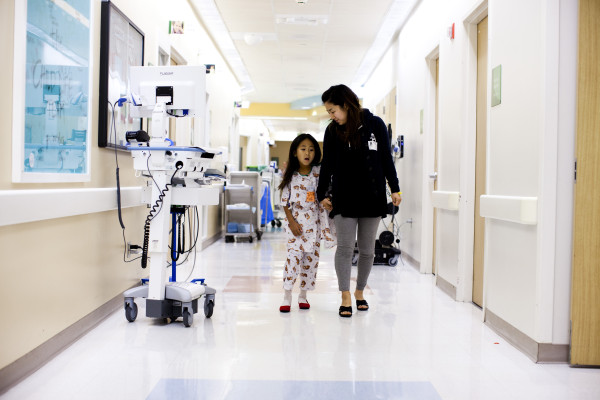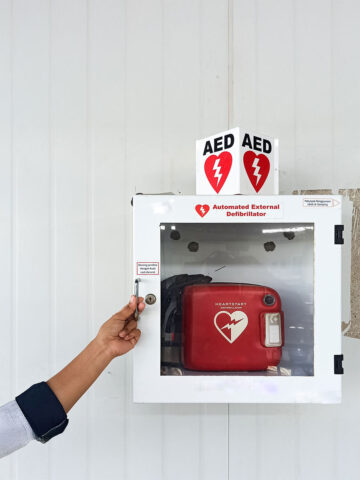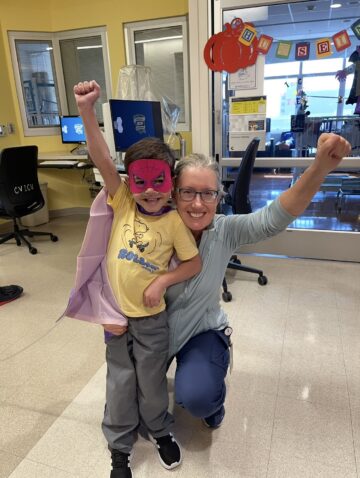It can be frightening to hear that your newborn or child has a congenital heart defect and needs surgery. Congenital heart defects are relatively common, affecting about one in every 100 newborns in the United States. Your child’s doctor will often refer you to a heart surgeon if your child needs surgery. But, how do you know if the hospital where the surgery will be performed offers the best heart program for your child?
Not all hospitals that perform pediatric heart surgery are created equal. Infants and children who have heart defects or require heart surgery need to be cared for by a team of highly trained specialists in a facility that is designed to meet their needs. It’s best to do research on the hospital’s heart program, even if the surgeon or hospital has been referred by your child’s doctor.
One of the first things to look for in a pediatric heart program is to determine if the hospital has a specialized program and team of care providers who care exclusively to cardiac patients. Your child needs more than just a general pediatric surgeon and nurses, and adult heart surgeons typically don’t operate on children.

“Surgeons will be the first to tell you that pediatric heart surgery is a team effort,” said Dr. Richard Gates, surgeon-in-chief and medical director of the CHOC Children’s Heart Institute. “When looking for a heart program, look for an intensive care unit devoted entirely to pediatric heart patients, and if there are pediatric heart-focused nurses, anesthesiologists and perfusionists.”
A reputable, high-performing children’s heart program will use only specially trained and board-certified pediatric cardiologists, thoracic surgeons and anesthesiologists, as well as cardiac nurses and perfusionists (people who operate the heart-lung machine during surgery). The program should also have more than one heart surgeon in case an emergency arises and your child’s surgeon is not available.
Also, does your child’s heart program have a dedicated pediatric cardiovascular intensive care unit (CVICU) staffed with board-certified intensivists? A board-certified, pediatric cardiac intensivist has additional training in caring for critically ill children in the CVICU, and specialized CVICUs have been shown to improve patient outcomes and reduce complications.
When researching a heart program, be sure to also check if the hospital reports its heart surgical outcome rates. A reputable hospital will report their outcome rates to the Society of Thoracic Surgeons (STS) for the public to see. STS rates will often be displayed on the hospital’s website, but you can also access these numbers directly from the STS website. Remember, you want your program’s rates to be above the national survival rates.
Other designations to look for are hospital safety awards, such as Top Hospital designation by the Leapfrog Group. Leapfrog’s Top Hospital award is widely acknowledged as one of the most prestigious distinctions any hospital can achieve in the United States. Top Hospitals have lower infection rates, better outcomes, decreased length of stay and fewer readmissions. In 2015, only 12 children’s hospitals in the nation and only two in California earned the respected award.
CHOC Children’s has compiled a list of 10 questions to ask when choosing a heart program for your child. Use this checklist as a guide when talking to your medical provider before your child has heart surgery.
The CHOC Children’s Heart Institute offers state-of-the-art diagnosis and treatment for an entire spectrum of cardiac conditions. We have assembled an expert team of board-certified pediatric cardiologists, surgeons, intensivists, anesthesiologists, perfusionists, cardiovascular nurse practitioners, respiratory therapists, dietitians, social workers, child life specialists and case managers — all with specialized training and expertise. Learn more about heart surgery at CHOC.





